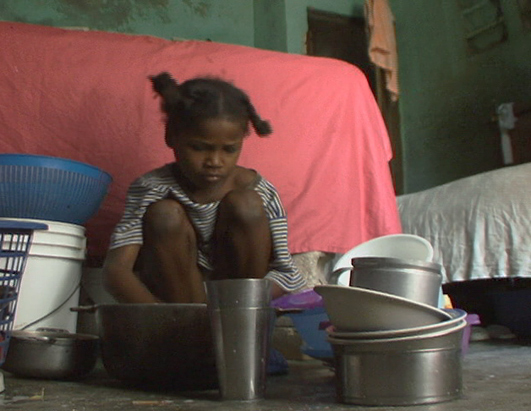By Alyxandra Stanczak
Impunity Watch Reporter, Middle East

Photo: Mosaad Abu Fagr, Bedouin activist, was released from detention this past Tuesday. (Image courtesy of Amnesty International)
EL ARISH, Egypt – This past Tuesday, July 13, 2010, Bedouin rights activist and blogger Musaad Suliman Hassan Hussein, also known by his pen name Musaad Abu Fagr, was released from Abu Zaabal Prison. Hussein had been detained without trial for approximately three years under Egypt’s Emergency Law.
On the day of Hussein’s release, Ibrahim al-Arjani and Mohamed Isa al-Manai, also activists for Bedouin rights, were released from the same prison. Together, these three activists were accused of organizing protests among the 200,000 Bedouins living in the northern Sinai Peninsula.
Bedouins residing in Egypt’s Sinai Peninsula have faced high unemployment in recent years and continue to face labor inequities. Although the Sinai Peninsula is Egypt’s main region for oil drilling and processing, most oil-related jobs go to workers from the Nile area, instead of local Bedouins.
Bedouins have protested this selective employment, saying that it is tantamount to government discrimination. Protests in the area have led to thousands of arrests since 2004. In addition, Bedouins in the area have not shared in the increased revenue derived from the booming tourism industry in the Sinai Peninsula area.
Hussein, al-Arjani, and al-Manai blogged bout the disparate treatment of Bedouin in Sinai Peninsula before their respective arrests. Hussein was arrested three years ago, charged by the government with the possession of unlicensed firearms, driving a car without a licence, and provoking unrest.
Each time a court issued an order for Hussein’s release in the past three years, the Egyptian Ministry of the Interior would intervene and block his release pursuant to Egypt’s Emergency Law. The Emergency Law, which was been in place since 1981, was renewed for a two-year period in May 2010.
The Emergency Law gives the Egyptian government the power to arrest people without charge, detain prisoners indefinitely, limit freedom of expression and assembly, and maintain a special security court.
For more information, please see:
Amnesty International – Egypt releases bedouin rights activist – 14 July 2010
Los Angeles Times – Egypt: Government shows goodwill toward Sinai Bedouins – 14 July 2010
BusinessWeek – Egypt creates Sinai oil jobs to quell Bedouin unrest – 13 July 2010
Reuters – Egypt releases three Bedouin activists in Sinai – 13 July 2010
New York Times – Egyptian emergency law is extended for two years – 11 May 2010

